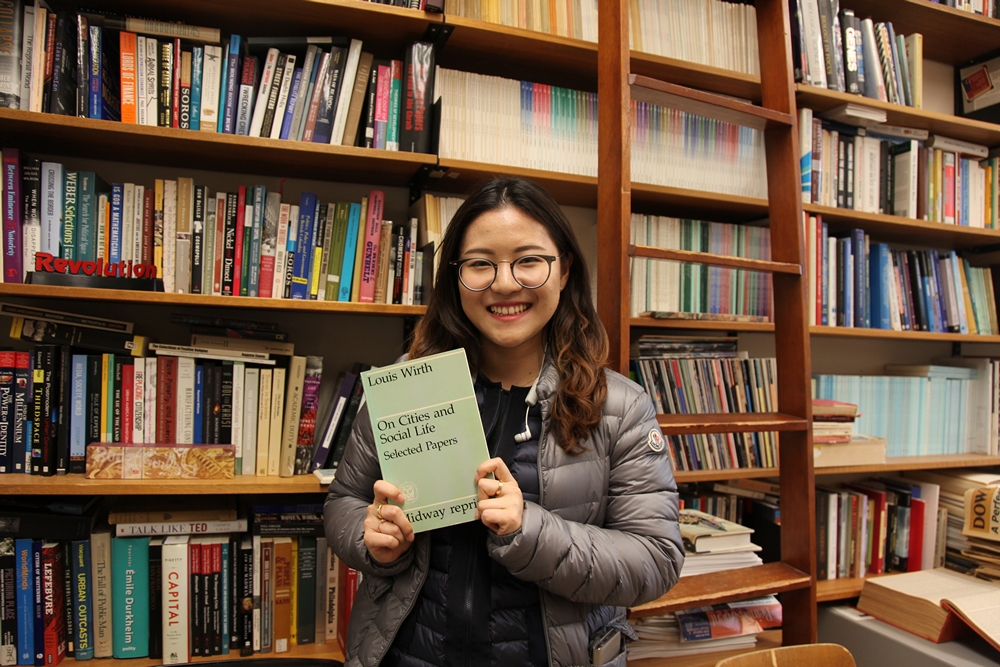

CopyLeft 2019 Elvin K. Wyly
Except where otherwise noted, this site is
licensed under a Creative Commons Attribution 2.5 License
Urban Studies Coordinating Committee
Classical, Near Eastern, and Religious Studies
School of Community and Regional Planning
Sociology
School of Architecture
Geography
Committee Alumni, and Other UBC Faculty with Urban Expertise
History
Institute of Asian Research
Art History, Visual Arts, and Theory
Sociology
People
Urban Studies Coordinating Committee
lisa.cooper@ubc.ca
Lisa Cooper is Professor of Near Eastern Art & Archaeology and Director of Graduate Studies in the Department of Classical, Near Eastern, and Religious Studies at UBC. Her primary research interests lie in the study of the language, history and archaeology of "Greater Mesopotamia," a region consisting of the lands of ancient Iraq, Iran, Syria, and Turkey (8000 - 333 BCE). She is especially interested in understanding how archaeological remains can further our knowledge of ancient human behavior, how artifacts contribute towards the formulation of chronologies, and how they reflect or emphasize social and political histories. Her doctoral dissertation (University of Toronto, 1997) examined these issues in the Middle Bronze Age of the Euphrates Valley in Syria. This research not only formulated a sound relative chronology based on excavated artifacts, principally pottery, but it also attempted to address the ways in which trade, interaction and cultural exchange can be elicited from the Euphrates archaeological record. Finally, it showed how artifacts compliment and further enhance our understanding of the political geography of the area, known otherwise from cuneiform texts found in the tablet archives of several sites along the Euphrates River. Recently, Professor Cooper extended her research to explore an enigmatic "Dark Age" of the Bronze Age of Greater Mesopotamia, which took place at the very end of the third millennium BCE. During this period, many parts of the ancient Near East, especially Syria and Palestine, were experiencing some form of urban demise or "collapse." At this time, cities had been either destroyed or abandoned, and were replaced by smaller, more dispersed agricultural settlements and pastoral nomadic communities. Professor Cooper's work on this time period concentrates on material excavated in contexts of the late 3rd millennium BCE in the Euphrates Valley of Syria. It seeks to show that, while all earlier urban communities in this region had been abandoned, there continued to exist a viable sedentary population in the area. This population comprised small autonomous communities who practised agriculture and animal husbandry and who continued to trade and manufacture technically sophisticated pottery.
Robert.VanWynsberhe@ubc.ca
Rob VanWynsberghe is an Associate Professor in the Department of Educational Studies at the University of British Columbia (UBC). His primary area of research studies meaningful articulations between classrooms and communities, especially as influenced by the social philosophies of pragmatism. A book on the topic was published in 2014. His work has been supported by grants from the Social Sciences and Humanities Research Council of Canada, UBC’s Teaching and Learning Enhancement Fund, and the International Olympic Committee. Recent publications include “Adaptive Education Applied to Higher Education for Sustainability” (International Journal of Sustainability in Higher Education); “Conceptions of Sustainability within the Redesigned K-12 Curriculum in British Columbia, Canada: Mapping a Disputed Terrain” (Journal of Sustainability Education) and; “Green jobs for the disadvantaged: an analysis of government policies in British Columbia” (Journal of Environmental Planning and Management). Since 2016, he has researched and designed the first ever sustainability cohort in the teacher education program in UBC. In addition, he also launched a Masters’ program in Education for Sustainability, which partners with the City of Vancouver on the implementation of sustainability, health, housing and planning policy. These program forms part of his previously mentioned research program.
earned a B.A. from UBC and a D.Phil from Oxford University. He is Associate Professor in the School of Community and Regional Planning at UBC. Professor Hutton's research and teaching interests emphasize policy implications associated with fundamental or 'structural' change at the urban and regional level, both in advanced and developing societies. Dr. Hutton's recent research output includes the changing relationship between Vancouver and the rest of B.C., economic implications of environmental enhancement, the growth of service exports from metropolitan Vancouver, and the development of models of contemporary urban change. Current strategic-level research projects include a monograph on Vancouver's development trajectory and pattern, a comparative analysis of metropolitan restructuring in Canada and Australia, the role of services in Pacific Rim urban development, transformation trends among east and south-east Asian city-regions, and innovation in Japanese urban management. Common to each of these initiatives is an interest in policy innovation and planning experiences, including growth management, socio-economic planning, and in urban and regional planning. In addition to the international urban development projects cited above, Dr. Hutton continues an active interest in planning problems in British Columbia and the rest of Canada, with some recent examples being industrial land issues in Vancouver, sustainable planning approaches for regional development in British Columbia, and service sector policies among Canadian metropolitan areas.
is Associate Professor of Sociology at UBC. He is a specialist on housing, family formation, population, cultural change, and social inequality. He earned a B.A. at Purdue University, an M.A. from Washington State University, and a Ph.D. from Brown University. His current major research projects is "Proper Housing and the Valued Family: A Cross-National Study," supported by the Canada Social Sciences and Humanities Research Council. This study examines historical change in the kinds of housing considered appropriate for various kinds of families, in various kinds of social positions and circumstances. The study combines contemporary life-course data obtained through surveys and qualitative interviews, with large-scale, large-sample secondary historical census and survey data; the study compares trends in Canada, Sweden, and the United States. Professor Lauster is also a Co-Investigator on another SSHRC-funded project, "Iglurjuaq' in transition: An Historical Analysis of Inuit Housing Policy." You may also be interested in Nathan's Family Research Blog.
is Associate Professor in the School of Architecture at UBC. Her research interests include the legacy of colonial modernity and architectural publicity in Nineteenth and Twentieth Century Algiers, the relations between public and private space in building design, and themes of modernity and utopia in Canadian and Japanese architecture. She has published articles on the architectural transformation of Vancouver, the politics of architectural production in Algiers in the 1930s, the history of urban housekeeping in Vancouver's apartment districts in the early Twentieth Century, and the gender implications of urban streets and public spaces. Professor McKay is the co-editor, with Patricia Vertinsky, of Memory, Monument, and Modernism: Disciplining Bodies in the Gymnasium (Taylor & Francis, 2004), and is currently writing a book on Design and Dissent: Algiers, Le Corbusier, Henri Prost and Others. In teaching, Professor McKay's concern for post-colonial issues and knowledge of architectural history of the 18th through 20th centuries establishes the context in which she offers the core, introductory architectural history coursework in the MArch programme. Her research interests frame regular seminars in advanced topics that attract a regular constituency of MArch and MASA thesis students; recent seminars have focused on spatial imaginations in the Twentieth Century, high-rise living, architecture in a post-colonial context, and architecture and authority: power, politics, and design.
is Professor in the Department of Geography, and Chair of the Urban Studies Program at UBC. His research focuses on the social and spatial dimensions of urban inequality in North American cities, with special attention to housing, neighborhood change, gentrification, and racial-ethnic discrimination in mortgage and credit markets. Most of his work examines the distinctive economic and political facets of urban inequality in the United States, but he has also begun research on the relations between local community organizations and mobile, transnational hallmark events, with a case study of Vancouver's successful bid to host the 2010 Winter Olympic Games; this project is an interdisciplinary effort with Rob VanWynesberghe and Jim Frankish, in the Institute of Health Promotion Research at UBC. Professor Wyly's research has appeared in Housing Policy Debate, Cityscape, the Review of Black Political Economy, Housing Studies, Urban Affairs Review, the Journal of Urban Affairs, Urban Studies, Environment and Planning A, and Shelterforce.
Coordinating Committee Alumni
earned his Ph.D. from Princeton University in 1973. He is Professor in the Department of History at UBC. His research and teaching focus on early modern urban and social history, German history, 1500-1800, the Reformation, and German Jewish History. Among many other publications, he is the author Urban Society in an Age of War: Nördlingen, 1580-1720 (Princeton University Press, 1979); The Early Modern City, 1450-1750 (Longman, 1995); and Urban Politics in Early Modern Europe (London: Routledge, 2000). After many years devoted chiefly to working on the social and political history of cities in early modern Germany and Europe, Professor Friedrichs is now undertaking a comparative study of urban political cultures in early modern Europe and Asia. In connection with this project he was awarded a Shastri Indo-Canadian Institute faculty training grant to spend three months in India during the fall of 2003. From February to June 2004 he continued work on this project as a Visiting Fellow at the Shelby Cullom Davis Center for Historical Studies at Princeton University. A second area of research concerns the use of memoirs, letters and diaries to examine social networks and patterns of acculturation among German Jewish men of the nineteenth and twentieth centuries.
is Associate Professor and Canada Research Chair in Asian Urbanism and Culture in UBC's Institute of Asian Research. He earned a BA in Architectural Design and Engineering from Petra Christian University in Surabaya, Indonesia, and an M.A. and Ph.D. in the History and Theory of Art and Architecture at the State University of New York, Binghamton. His work focuses on the relations between architecture, urban design, and political cultures, the historical and contemporary representation of identities and city life in Asia, and the effects of colonialism, modernity, and nationalism on the visual identity and political identities of cities and city residents. He is the author of "Behind the Postcolonial: Architecture, Urban Space, and Political Cultures in Indonesia (Routledge), and numerous publications in urban studies, art history, architecture, and interdisciplinary journals.
served for many years as Professor and Head of the Department of Art History, Visual Art, and Theory at UBC. His research interests center on 18th to 20th century European and North American art and architecture, the Modern Movement and late imperialism, and the relations between design, technology, and culture. His work pays special attention to the processes and context of art and architectural creation and production. Consequently he seeks to interrelate both theoretical and more traditional humanist approaches to the study of the conceiving, making and interpretation of art works. He resists attempts to separate art, architecture and more applied design as much as he seeks a multi-disciplinary analysis - one that recognizes the complexity of the design process but also the often anecdotal nature of the choices exercised by practitioners. Contingent factors are thus related to the introvert actions of artists and architects in pursuit of individual goals and recognition within the currency of contemporary practice. This includes the formulation of theoretical and critical texts, as well as their reconfiguration through transference and adaptation in the professional or institutional arenas together with personal performance. The majority of his teaching and research have been in what is best termed transatlantic art, architectural and cultural history. Particular themes of study have been the impact of antiquarianism upon so-called high art/aesthetics and commercial design (1714-1914); historicism and eclecticism in relation to expansionist capitalism and professionalisation; the reformatory yet also authoritarian effects of Modernist theory and design and degenerative and revisionist tendencies in Modernist architecture and urbanism. He is also researching the emergence of diversions in design theory and practice especially between architect and engineer during the first phase of industrialization 1711-1857. This last topic relates to a larger project on the social and cultural impact of science and technology. Rhodri Windsor-Liscombe is also actively involved in interdisciplinary problematization, conducting seminars in the theory and construction of knowledge and Chairing the Individual Interdisciplinary Studies Graduate Program.
earned a B.A. in Political Science from the Johns Hopkins University, an M.Sc. in Comparative Social Research from Oxford University, and M.A. and Ph.D. degrees in Sociology and Social Policy from Harvard University. He is an Assistant Professor in the Department of Anthropology and Sociology at UBC. His research interests include urban poverty, labour, race and ethnicity, immigration, and the social determinants of health and health disparities. Professor Zuberi's doctoral research examined the impact of social policy differences between Canada and the United States on the quality of life and material hardships of low-wage workers, studied through a quantitative and qualitative analysis of hotel workers in Vancouver and Seattle. Professor Zuberi has published articles in the International Journal of Comparative Sociology and the Johns Hopkins Law Journal, and he is currently working on a book manuscript for Cornell University Press. In 2004-2005 he was a Post-Doctoral Research Fellow at UBC's Human Early Learning Partnership (HELP), supported by the Canadian Institute for Advanced Research.
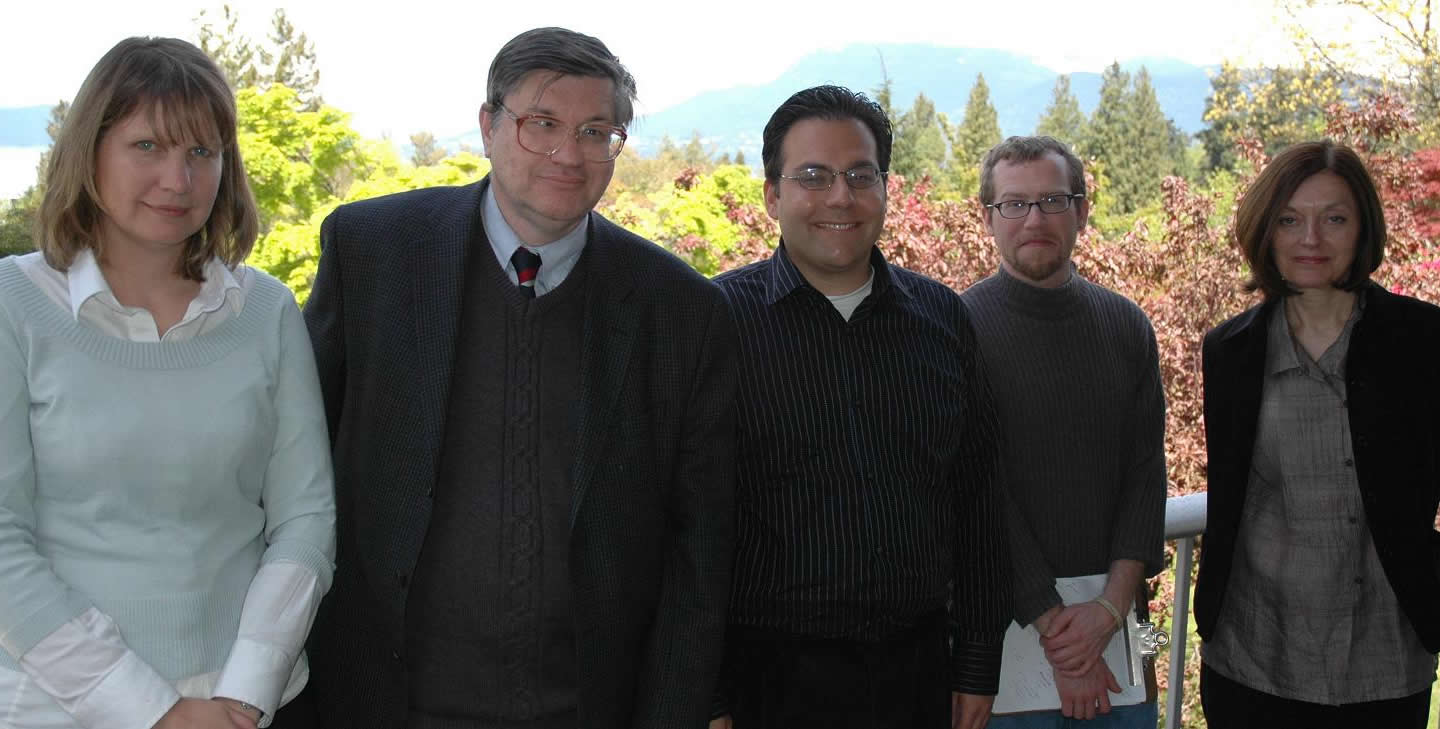
Left to Right: Lisa Cooper, Chris Friedrichs, Dan Zuberi, Nathan Lauster, and Sherry McKay
UBC, May, 2006
"A new type of city has appeared. It is the global city…How could cities with as diverse a history, culture, politics, and economy as New York, London, and Tokyo experience similar transformations concentrated in so brief a period of time?...In order to understand why major cities with different histories and cultures have undergone parallel economic and social changes, we need to examine transformations in the world economy. Yet the term global city may be reductive and misleading if it suggests that cities are mere outcomes of a global economic machine. They are specific places whose spaces, internal dynamics, and social structure matter; indeed, we may be able to understand the global order only by analyzing why key structures of the world economy are necessarily situated in cities." Saskia Sassen (1991). The Global City: New York, London, Tokyo. Princeton, NJ: Princeton University Press.
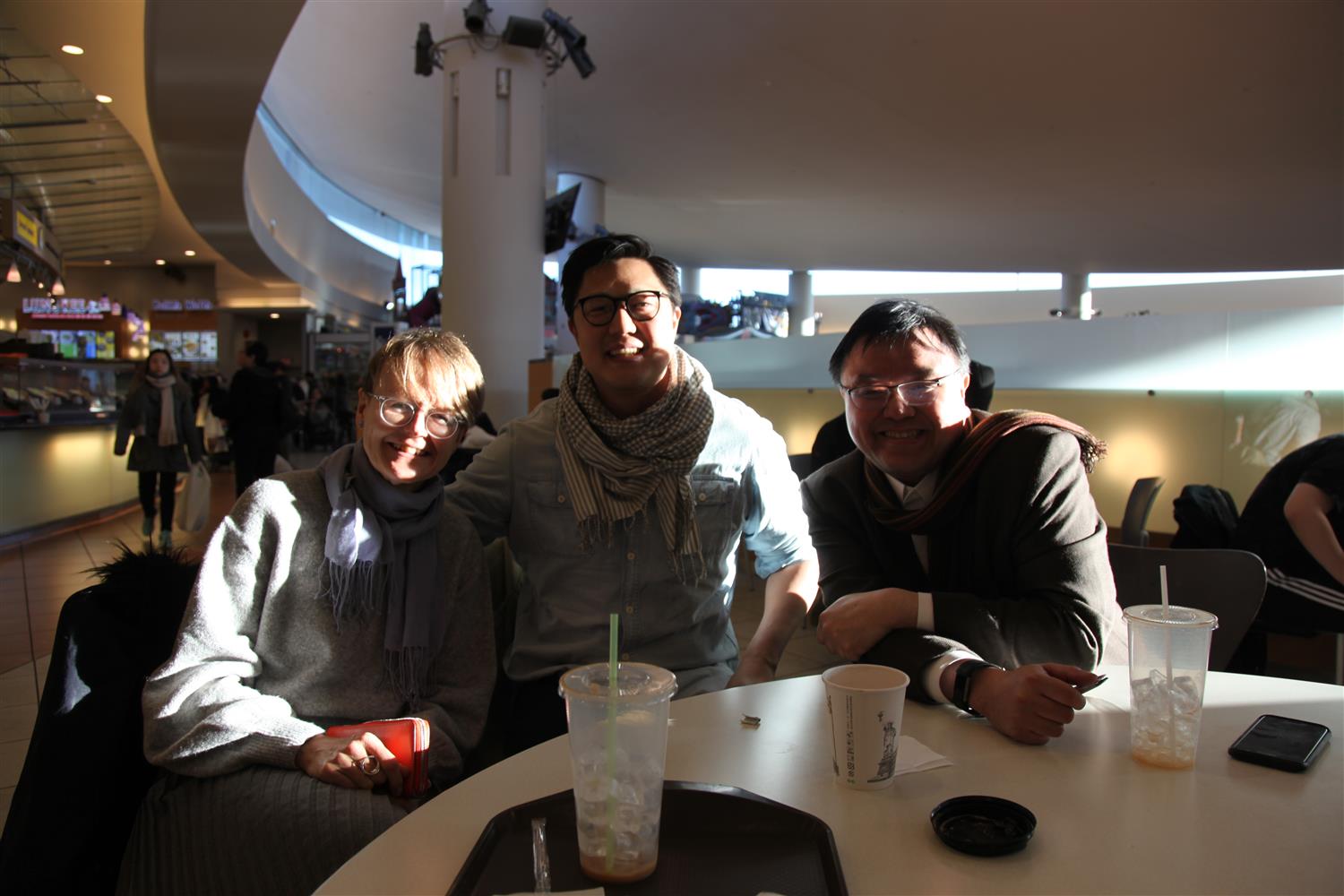

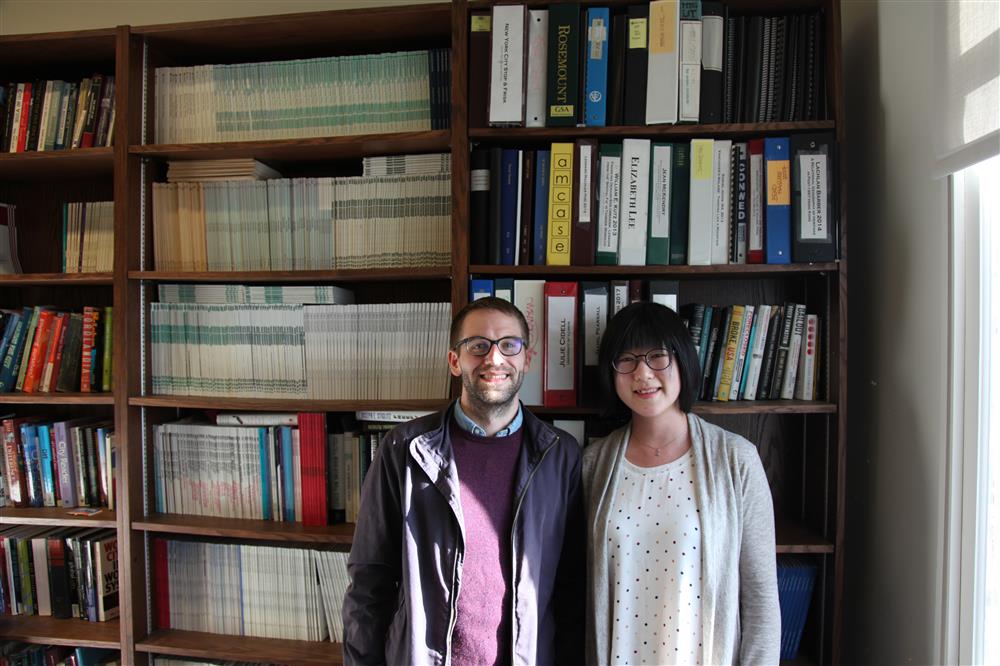
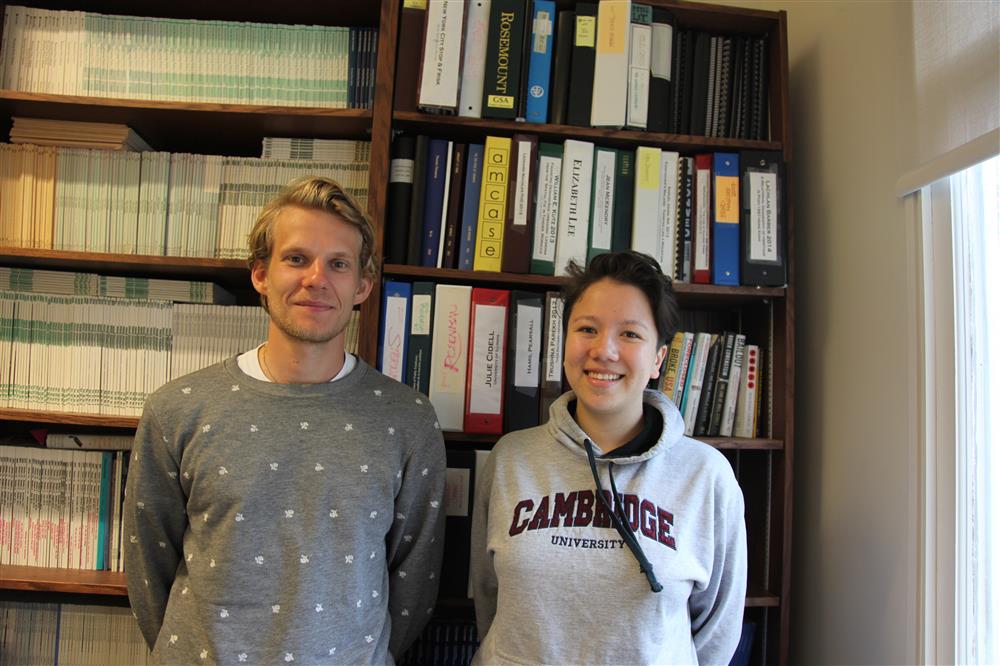
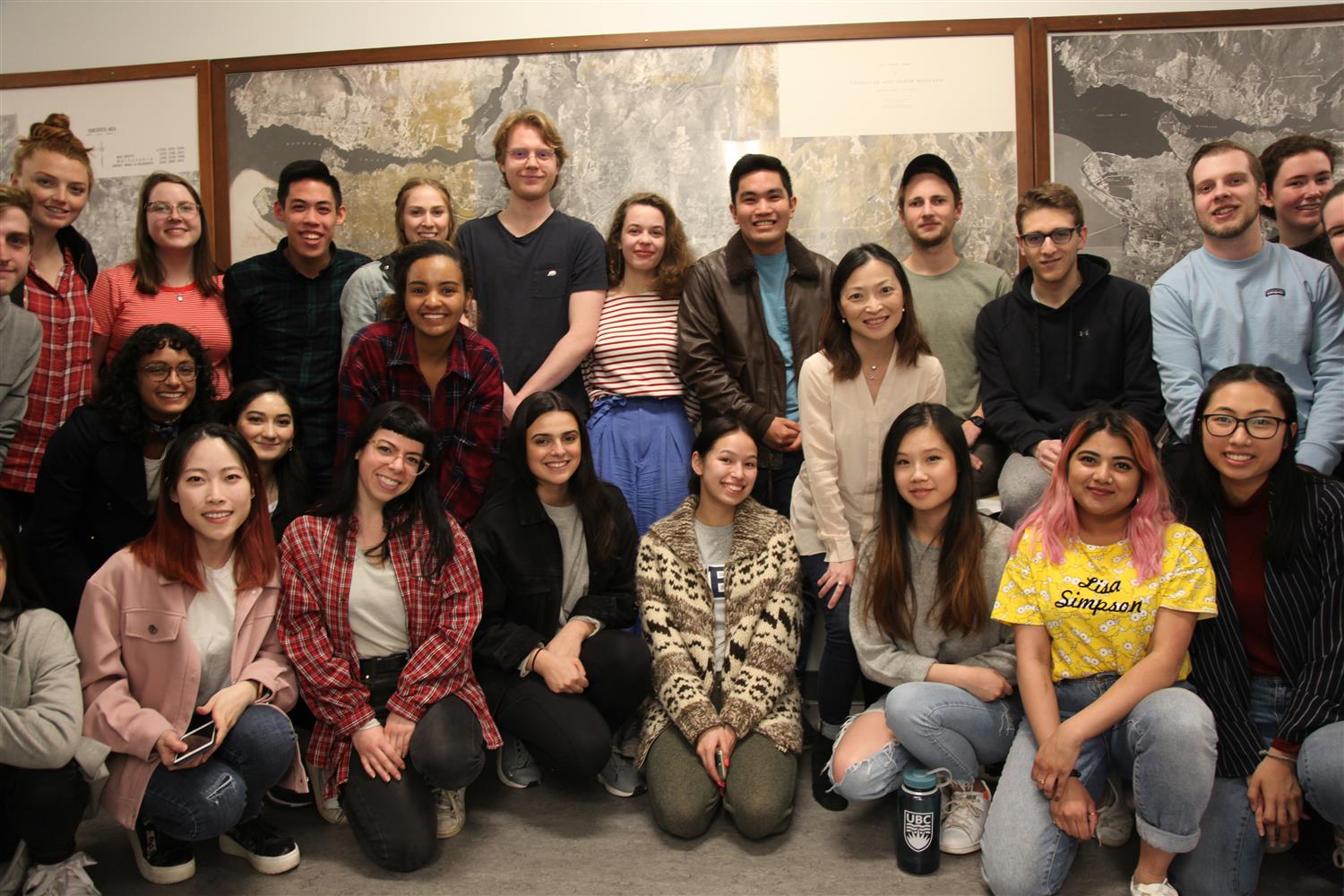
People
Colleagues in the Urban Studies Seminar, April 2019
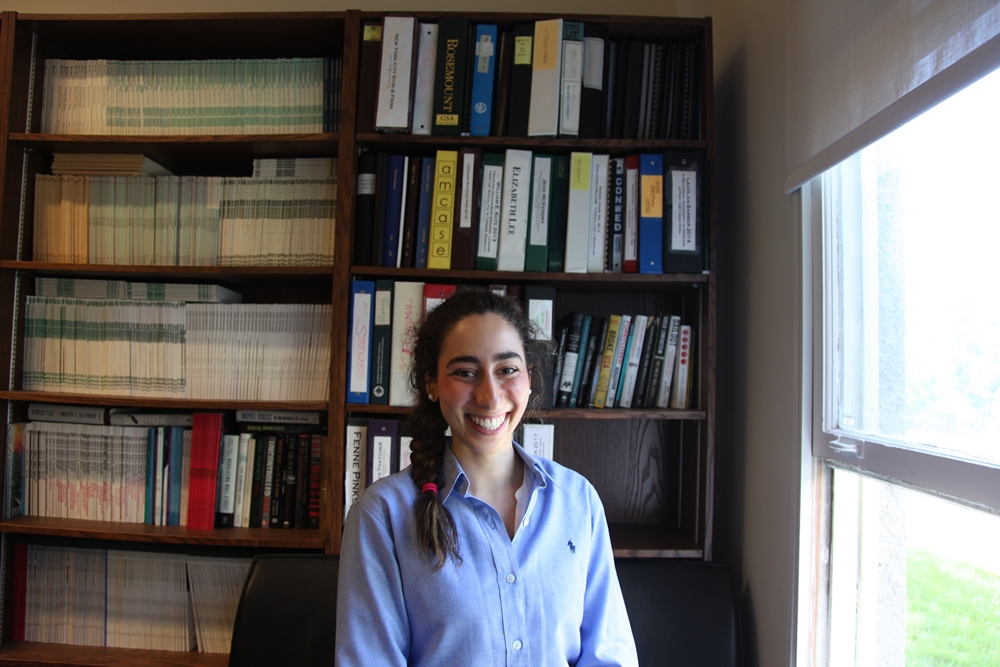
Mira Seyfettinoglu stops by for a visit a few years after taking Geography 350, Urban Worlds. Mira's remarkable achievements since then include completing an undergraduate degree, working for the German consulate, and now undertaking Master's research at Maastricht University in the Netherlands. Mira's important research focuses on international comparisons of business-investment immigration and citizenship policies and programs.
May, 2019
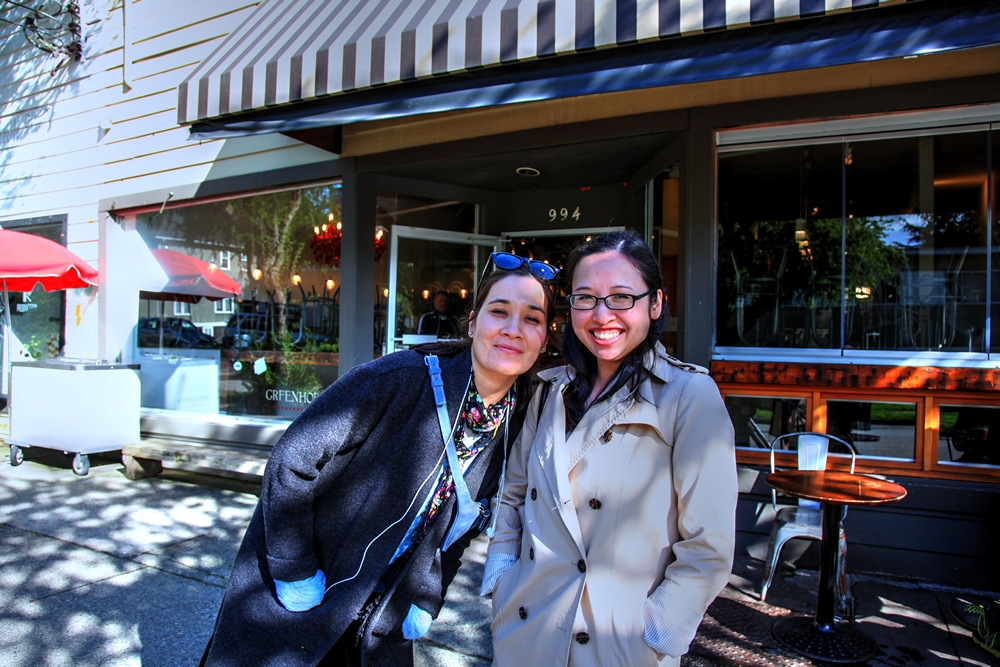
Emma Abdjalieva and Menora Tse, at an Urban Studies Research Project Meeting in the West End.
Yeon Soo Seo (Christine), winner of the 2018 Brittany Jang Prize in Urban Futures for her cutting-edge analysis in "The Effects of GPS Technology on an Individual's Cognitive Map of Cities."





